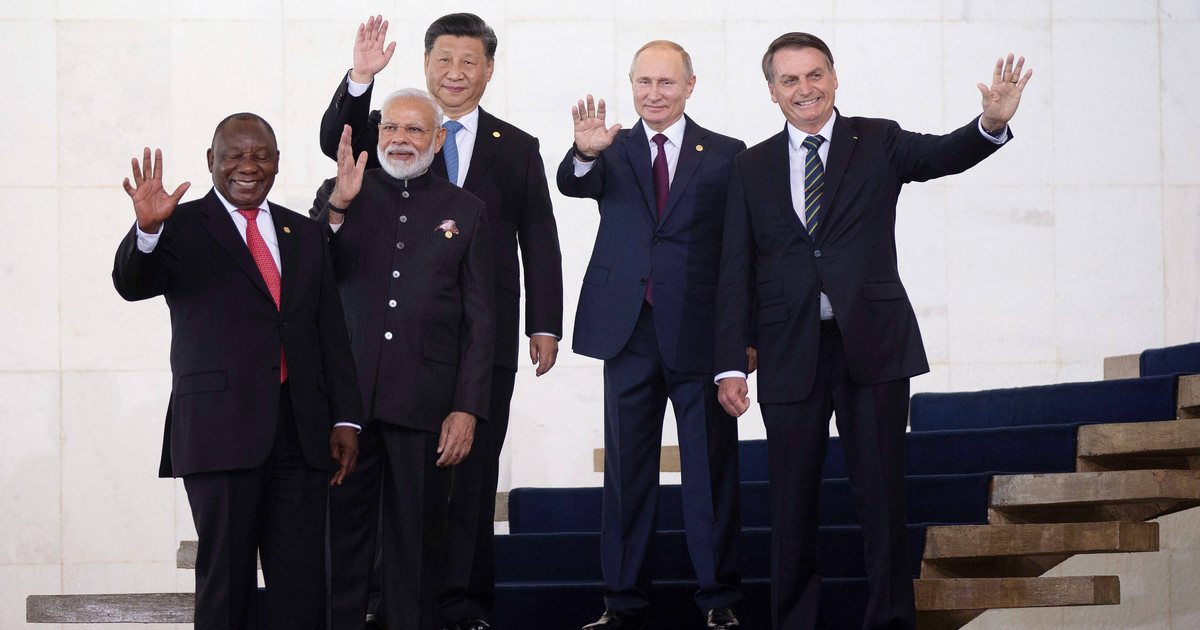Pope Francis is very straightforward. He listed Putin as the person responsible for Russia’s aggression in Ukraine. He compared the deaths of thousands of innocent civilians to the genocide in Rwanda and, against all formal respect, disapproved of the Russian Orthodox patriarch Cyril.
Finally. Since the Russian invasion on February 24, the head of the Church has repeatedly expressed sympathy for the plight of the Ukrainian people – but has remained silent about the causes of this suffering. It was as if Ukraine had been hit by a natural disaster. The most spectacular event in this area was a trip in a small, unprotocol car to the Russian ambassador to the Holy See. This is a “clear signal that the world should see”, the Pope said.
“How many divisions does the Pope have?”
Francis thus ended what for weeks appeared to be diplomatic restraint. In a rather unusual way, the Pope gave an interview to one of the main Italian newspapers, the editor-in-chief of the Corriere della Sera and his deputy. The text appears in the account form; So the newspapers don’t publish it as a classic interview. And this is the case with such a difficult topic. This may seem surprising.
“How many divisions does the Pope have?” This famous question is attributed to the Soviet dictator Joseph Stalin. It is said that with these words in 1945, at the end of World War II, he clearly expressed his contempt for the head of the Church as a spiritual leader and an ally of the Allies. For Stalin, only bare strength mattered: soldiers, cannons and tanks.
Now, 77 years later, Russian President Putin seems to think like Stalin. Franciszek made it clear that he wanted to visit Putin in Moscow, that his cardinal foreign minister conveyed this wish to the Kremlin a few weeks ago. Franciszek did not receive an answer.
Like a priest from the suburbs of Buenos Aires
Weaved into a conversation about knee pain and Italian domestic politics, all of this appears to be the next stage of the media policy of the strange-looking Pope, who is in serious trouble behaving like a priest from the suburbs of Buenos Aires. True to the slogan: let’s talk to the editor-in-chief. Gone are the days when fundamental comments on global issues like those made in conversations with the Corriere della Sera boss were included in speeches in the diplomatic corps.
But perhaps this was the Pope’s response to Stalin’s considerations. Because even today the head of the Catholic Church does not have any weapons, but only units of the Swiss Guard which seem like folklore. No, the Pope is defended, if anything, by the media, the public, his public statements.
Francis is very clear. From an ecumenical point of view, in normal times, that would be scandalous: The Pope publicly disapproves of his Russian Orthodox counterpart, Cyril, who has long been friends with the Kremlin and President Putin, and who theologically justifies the atrocities committed by Russia in Ukraine. By protocol, popes and patriarchs are treated equally. In their only meeting so far, they exchanged brotherly hugs and greeted each other as “brothers in Christ”. Now Francis is describing a seemingly odd scene in which Cyril reads to him his pre-formulated “justification for war” in writing for 20 minutes during a videoconference. The pope spoke of “officials of the clerical state” using political language and warned the patriarch not to be “Putin’s altar boy”.
Helsinki Vatican?
So, after this weird interview, everything is as old as it is now? Pope, a powerless speaker without his own army? After what can be heard in Rome today, one might hope that this is not the case. A highly competent Spanish-language Vatican website informs about the intense efforts of the highest hierarchy of the Church to convene an international conference to conclude a peace accord. In addition to Francis, the cardinal, secretary of state, Pietro Parolina, and the head of Vatican diplomacy, Archbishop Gallagher.
This format is clearly compared to the “Helsinki conference”. In 1975, during the Cold War, at the “Conference on Security and Cooperation in Europe” (CSCE) in the capitals of Finland, America, Canada, the Soviets and several dozen other European countries achieved something innovative: a commitment to cooperation, respecting shared boundaries. inviolability, the obligation to resolve conflicts peacefully. It remains a great European event to this day.
Is such a Helsinki Vatican possible? Is Francis or the churches working towards this goal? Do they have, if not an army, enough diplomatic allies? Perhaps the Pope’s interview, in which he clearly criticizes Russia, but at the same time quietly criticizes the military logic of the West, is a step on this path. Although the daily news and spooky photos from Ukraine do not give much hope for now.

“Reader. Future teen idol. Falls down a lot. Amateur communicator. Incurable student.”


